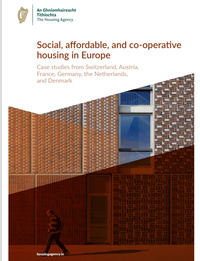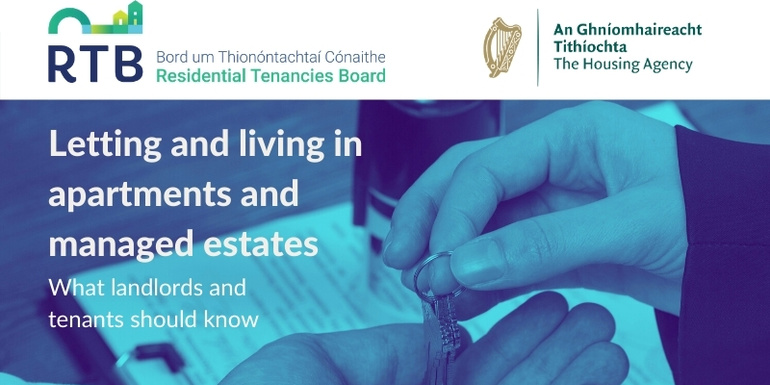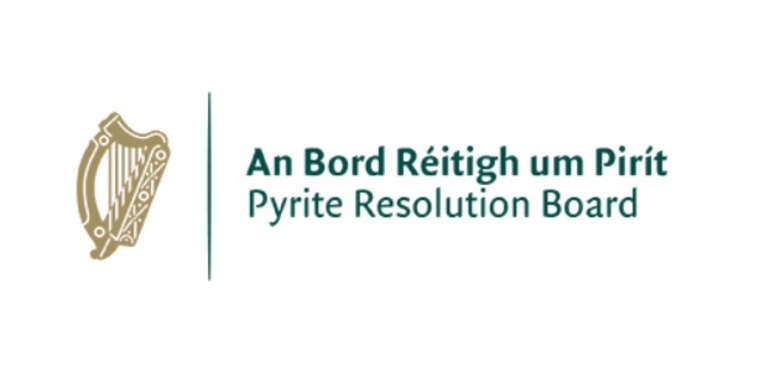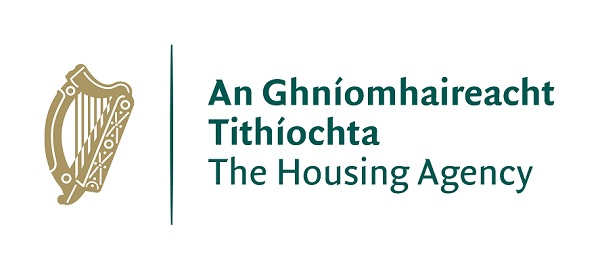
This report features case studies from Switzerland, Austria, France, Germany, the Netherlands and Denmark into innovations in design and construction of social, affordable and co-operative housing in Europe.

This report features case studies from Switzerland, Austria, France, Germany, the Netherlands and Denmark into innovations in design and construction of social, affordable and co-operative housing in Europe.

The Housing Agency and the Residential Tenancies Board (RTB) jointly hosted a lunchtime webinar on the rights and responsibilities of landlords and tenants in managed residential estates, such as apartment developments.
David Rouse, advisor with The Housing Agency, discussed legal relationships in managed estates, and the relevance of the Multi-Unit Developments Act 2011 to landlords and tenants. Emer Morrissey, Assistant Director, Head of Dispute Resolution at the RTB, addressed rights and responsibilities of landlords and tenants and dispute resolution in the context of managed estates.
The views expressed by the speakers in this video are not necessarily those of The Housing Agency. All information correct as of broadcast date: 3 November 2020.

Ireland shares many housing challenges with other developed economies, for example, providing the right housing in the right places, addressing affordability and ensuring that our housing stock contributes to sustainability - both sustainable communities and environmental sustainability.
Delivered in a virtual format, The Housing Agency's Housing Conference 2020 will explore these challenges in themed mid-morning sessions over the course of a week. Each session will provide expert input, followed by questions and discussion.
The final session will provide an opportunity for housing practitioners to network and learn about opportunities to further their professional skills and career development.
Participation in each webinar is free, but advance registration is required. After registering, you will receive a confirmation email containing information about joining the webinar.
Download the Housing Conference 2020 Agenda
To register for each webinar please click one of the links below:
| Monday 30 November 11:30am-1pm |
Key Challenges |
Register |
| Tuesday 1 December 11:30am-1pm |
Preventing Homelessness |
Register |
| Wednesday 2 December 11:30am-1pm |
Housing Affordability |
Register |
| Thursday 3 December 11:30am-1pm |
Sustainable Communities |
Register |
| Friday 4 December 10:30am-12pm |
Build Your Career in Housing |
Register |
All times above are Irish Standard Time
Please note that these sessions may be recorded for future use.

The Housing Agency's vision is to promote sustainable communities.
Recently The Housing Agency hosted 'Building Sustainable Communities: National & International Perspectives', a series of webinars that considered some of the key elements of future resilient and sustainable communities. Many thanks to our expert speakers for contributing to the series.
Aligning the provision of housing with the UN Sustainable Development Goals, Geneva UN Charter on Sustainable Housing, The European Green Deal, and the National Climate Action Plan 2019 is a response to ensure that housing will be put on a more resilient and sustainable path.
The positive impact of housing and communities; economic effectiveness; inclusion and participation; and cultural adequacy (Geneva UN Charter on Sustainable Housing). The Autumn webinar series built on topics discussed in the Summer webinar series and explores four topics which can facilitate a more resilient and sustainable approach to housing: EU funding for building sustainable housing; the German DGNB Sustainable Building Certification; Community led town centre regeneration; and Sustainable Transport and Housing.
Please click below to view each webinar. Alternatively, view the complete playlist on The Housing Agency's YouTube channel.
The views expressed by the speakers in these videos are not necessarily those of The Housing Agency. All information correct as of broadcast date.

The State could save €900 million over 30 years[i] as a result of direct public investment in Supported Housing for older people, research conducted by The Housing Agency has found.
‘Thinking Ahead: The Financial Benefits of Investing in Supported Housing for Older People’, found that, by supporting people to live in homes suited to their needs, an average annual Government saving of €4,650[ii] per person can be made, compared to that individual remaining in their current home or moving into long term residential care.
The figures are based on the provision of Supported Housing for 11,400 people over the next 10 years, a number derived from expected projections in Ireland’s population aged over 80 during this time period.[iii]
Supported Housing is housing built specifically for older people, offering some level of care and support.
At the launch of this research today, co-authors Roslyn Molloy and Rory Mulholland outlined the range of Supported Housing options explored and the benefits derived from each:
· Independent Living accommodation (where a low level of additional services would be required) provided through social housing for one older person would generate an annual benefit of €4,700.
· Assisted Living accommodation (where there may be a healthcare manager, housing manager, or an activities coordinator on site, and day care/primary care centres nearby) provided through social housing for one older person would generate an annual benefit of €5,200.
· Specialised Living accommodation (where social and healthcare staff would be on-site, meals would be provided, and care supports would be available 24-7, similar to nursing home care) provided through social housing for one older person would generate an annual benefit of €2,200.
Privately-funded Supported Housing could potentially generate annual savings of €4,000, €9,200 and €20,000 for each accommodation type respectively. Additional savings from private provision are due to the absence of capital costs being met up-front by the State.
Launching the report, Minister of State with responsibility for Local Government and Planning, Peter Burke TD, said:
“As a nation we are living longer, and the number of older people in our population is set to grow significantly in the next ten years. In response, this Government recognises the need to plan ahead to meet the housing and healthcare needs of an ageing population. This research is a significant step in our ongoing work in this area.”
Chief Executive of The Housing Agency, John O’Connor, said:
“While this research began pre- Covid-19, its relevance as we continue to deal with the global pandemic is clear. This year has shown us the power of community.
“Through Supported Housing, many older people can remain in their own communities and maintain a level of independence that would otherwise be lost. It strengthens their connection to family and friends, and provides them with a secure home.
“For many people, residential nursing home care may be the most appropriate form of care into their later years. However, for many the availability of a Supported Housing option would provide a welcome alternative and come with a significant saving to the State. Such savings come from preventing or delaying the need for an older person to access nursing home care, but also by reducing the care needs of those who would otherwise stay in standard accommodation.”
Research outlined in Thinking Ahead: The Financial Benefits of Investing in Housing for Older People was conducted as part of a range of recommended actions under the policy statement ‘Housing Options for Our Ageing Population’, published by the Government in March 2019.

The report Thinking Ahead: The Financial Benefits of Investing in Supported Housing for Older People was conducted as part of a range of recommended actions under the policy statement ‘Housing Options for Our Ageing Population’, published by the Government in March 2019.
Carried out by The Housing Agency, this research found that, by supporting people to live in homes suited to their needs, an average annual Government saving of €4,650 per person can be made, compared to that individual remaining in their current home or moving into long term residential care.
The figures are based on the provision of Supported Housing for 11,400 people over the next 10 years, a number derived from expected projections in Ireland’s population aged over 80.
On 29 October 2020 the Minister for State with responsibility for Local Government and Planning, Peter Burke TD, launched both the above report, and the Attitudinal Survey of Mature Homeowners, which was conducted by the Department of Housing, Local Government and Heritage and the Irish Government Economic and Evaluation Service.
You can read the Attitudinal Survey of Mature Homeowners here.

The Housing Agency has welcomed the announcement of significant investment in housing in Ireland, as set out in Budget 2021.
With a total housing allocation of €3.3 billion – a 24 per cent increase on Budget 2020 –Budget 2021 provides not only the largest investment in housing in Ireland to date, it also indicates a significant commitment to a long-term approach to addressing Ireland’s housing and homelessness challenges.
Welcoming the €110m package of affordability measures outlined at the comprehensive budget briefing from the Minister for Housing, Local Government, and Heritage today, The Housing Agency’s Chief Executive John O’Connor said:
“The Housing Agency welcomes Minister O’Brien’s commitment to a sustainable, and long-term investment in affordable homes for purchase or rent. Our vision is to promote sustainable homes and communities; this budget represents a commitment to that vision.
“In particular, we welcome the investment in affordable purchase shared equity and cost rental homes. Long-term investment in affordable housing is a critical measure to achieve affordability for households into the future.
“With plans to deliver 12,750 new social homes through build, acquisition and leasing programmes, including building 9,500 new social homes, The Housing Agency looks forward to working with the Minister and his Department to achieve the ambitious targets set out in the Budget.
“We will also work with local authorities, approved housing bodies, and the broader housing sector to deliver a sustainable investment in affordable homes for purchase or rent.
“The Housing Agency’s role in housing policy, support and delivery has expanded in recent years, the allocation of €10.8m to the Agency reflects our commitment to deliver homes in sustainable communities to meet current and future needs.”

The Minister for Housing, Local Government and Heritage, Darragh O’Brien TD, has extended the pyrite remediation scheme to include the administrative area of Limerick City and County Council, which will see homeowners of dwellings with significant damage attributable to pyritic heave in County Limerick eligible to apply for remediation works under the Pyrite Remediation Scheme.
Previously, only the owners of dwellings located within the counties of Kildare, Meath or Offaly or the administrative areas of Fingal County Council, Dublin City Council, Dun Laoghaire-Rathdown or South Dublin were eligible to apply for remediation works under the scheme.
€20m was provided under Budget 2020 to cover the implementation of the pyrite remediation scheme and is a clear signal of the continuing importance attached by Government to addressing the issue of significant pyritic damage in private dwellings. This will bring to approx. €150m the total funding provided under the scheme since 2014.
The latest figures available indicate that up to 2,800 applications have been received under the Pyrite Remediation Scheme. Of these, 2,000 dwellings have been remediated under the scheme at an average cost of approx. €70,000 per dwelling.
Commenting as he visited the 2000th home to be remediated under the scheme in Balbriggan Co. Dublin, Minister O’Brien said, “I am very glad to extend the pyrite remediation scheme to the people of Limerick and I fully intend on ensuring that ultimately all eligible homeowners of dwellings affected by significant damage attributable to pyritic heave can have their homes remediated under the scheme,” he concluded.
The Housing Agency undertakes the remediation of properties affected by pyritic heave once accepted into the scheme through the Pyrite Resolution Board.
Pyritic material is naturally occurring in rock which was inadvertently used as stone fill under concrete floor slabs but is unsuitable for this purpose as it is subject to expansion over time when exposed to moisture. The expansion commonly causes severe cracking of floor slabs and other building elements and can make dwellings uninhabitable.
The Pyrite Resolution Act 2013 was enacted to put in place a scheme for the remediation of dwellings adversely affected by pyrite. The Act established the Pyrite Resolution Board who consider applications to the scheme and oversee the procurement of the remediation. Implementation of the Pyrite Remediation Scheme is by The Housing Agency.
The remediation process involves excavation and replacement of the entire ground floor structure within a dwelling, including all associated replacement of finishes, plumbing and electrical services. It normally requires the scheme participant to vacate their home for 3 months while the works are completed.
Full details of the Pyrite Remediation Scheme, including details of how to apply are available from the Pyrite Resolution Board website at www.pyriteboard.ie.

The COVID-19 pandemic has highlighted how important resilient and sustainable communities are to us all.
Decisions we now make in relation to housing, planning and regeneration will play a fundamental role in the future of our communities. Measures that are put in place will need to be ambitious and will require adaptation to a new way of doing things.
This June The Housing Agency will host a series of free expert-led webinars that will consider some of the key elements of future resilient and sustainable communities.
Participation in each webinar is free, but advance registration is required. After registering, you will receive a confirmation email containing information about joining the webinar.
To register for each webinar please click one of the links below:
| Wednesday 3 June 12-1pm |
Collaboratively retrofitting - a discussion on the pre-1919 Glasgow tenement retrofitting demonstration project. Prof Ken Gibb, UK Collaborative Centre for Housing Evidence |
Register |
| Wednesday 10 June 12-1pm |
Regeneration for all: How intergenerational housing can contribute to town and village renewal. Roland Karthaus, Matter Architecture |
Register |
| Wednesday 17 June 12-1pm |
Green spaces, urban places: The Importance of green space for neighbourhoods – the Mapping Green Dublin Project. Prof Gerald Mills, School of Geography, UCD |
Register |
| Wednesday 24 June 12-1pm |
Nature based housing: Solutions for housing developments. Dr Marcus Collier, School of Natural Sciences, Trinity College Dublin |
Register |
Please note that these sessions may be recorded for future use.
View the poster for this webinar series here.

Multi-unit developments (MUDs) are developments of several homes that share certain facilities. These managed estates are often apartment buildings or duplexes, but they can also be townhouses or stand-alone houses that share common facilities. These communities rely on robust owners’ management companies (OMCs) for them to be successful and sustainable.
With the increasing number of apartments, MUDs, and OMCs across the country, The Housing Agency is holding information webinars for volunteer directors of OMCs.
The webinars will cover:
Events will be held on April 21, April 28 and May 5. Webinars will begin at 6:45pm, and will involve a presentation and opportunity for participants to submit questions.
This webinar is free of charge, but registration is required. Please register using this link, or by email to MUD@housingagency.ie.
Information and Resources on OMCs and MUDs
Previous events in the series took place in:
